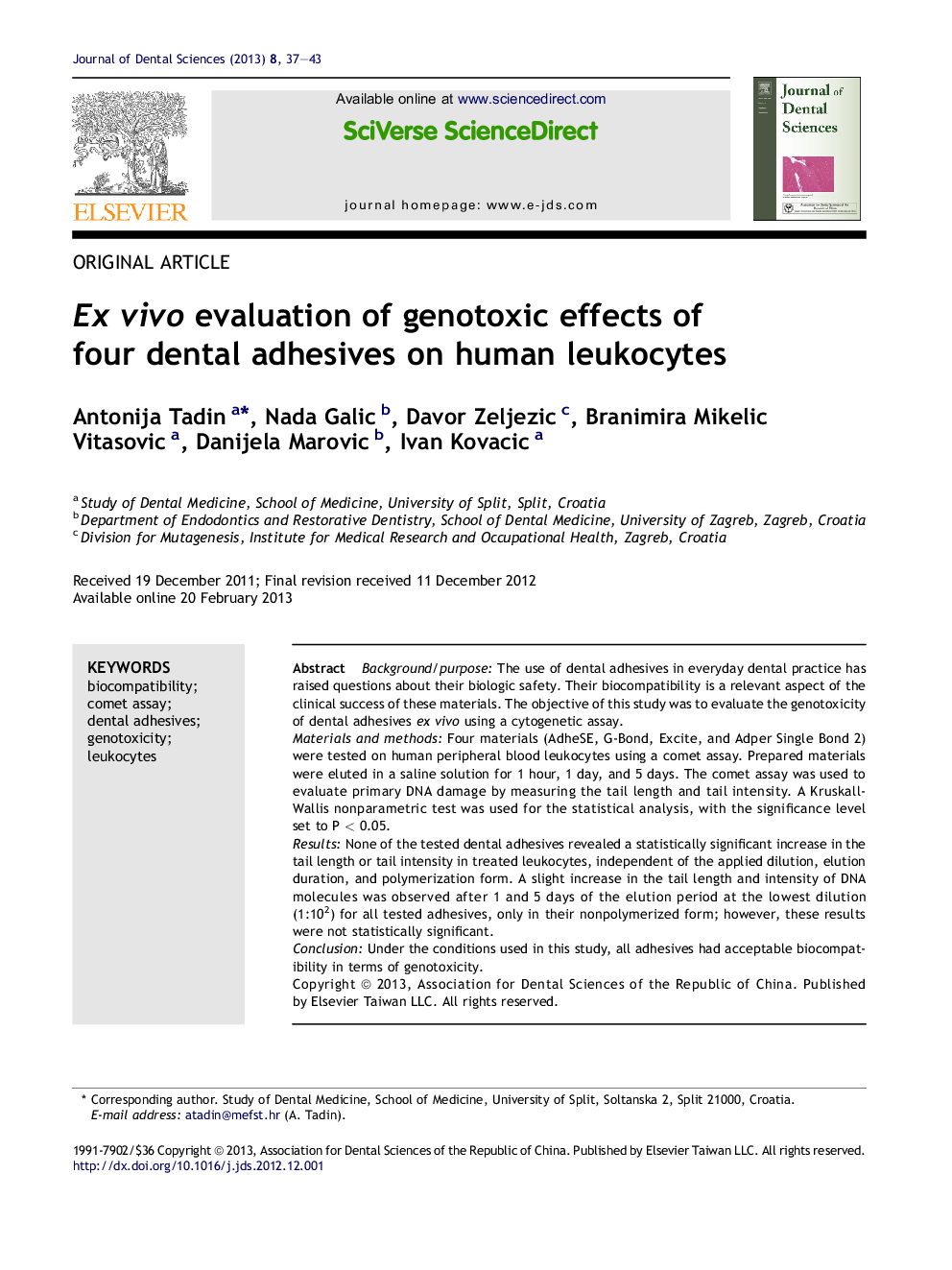| Article ID | Journal | Published Year | Pages | File Type |
|---|---|---|---|---|
| 3145639 | Journal of Dental Sciences | 2013 | 7 Pages |
Background/purposeThe use of dental adhesives in everyday dental practice has raised questions about their biologic safety. Their biocompatibility is a relevant aspect of the clinical success of these materials. The objective of this study was to evaluate the genotoxicity of dental adhesives ex vivo using a cytogenetic assay.Materials and methodsFour materials (AdheSE, G-Bond, Excite, and Adper Single Bond 2) were tested on human peripheral blood leukocytes using a comet assay. Prepared materials were eluted in a saline solution for 1 hour, 1 day, and 5 days. The comet assay was used to evaluate primary DNA damage by measuring the tail length and tail intensity. A Kruskall-Wallis nonparametric test was used for the statistical analysis, with the significance level set to P < 0.05.ResultsNone of the tested dental adhesives revealed a statistically significant increase in the tail length or tail intensity in treated leukocytes, independent of the applied dilution, elution duration, and polymerization form. A slight increase in the tail length and intensity of DNA molecules was observed after 1 and 5 days of the elution period at the lowest dilution (1:102) for all tested adhesives, only in their nonpolymerized form; however, these results were not statistically significant.ConclusionUnder the conditions used in this study, all adhesives had acceptable biocompatibility in terms of genotoxicity.
